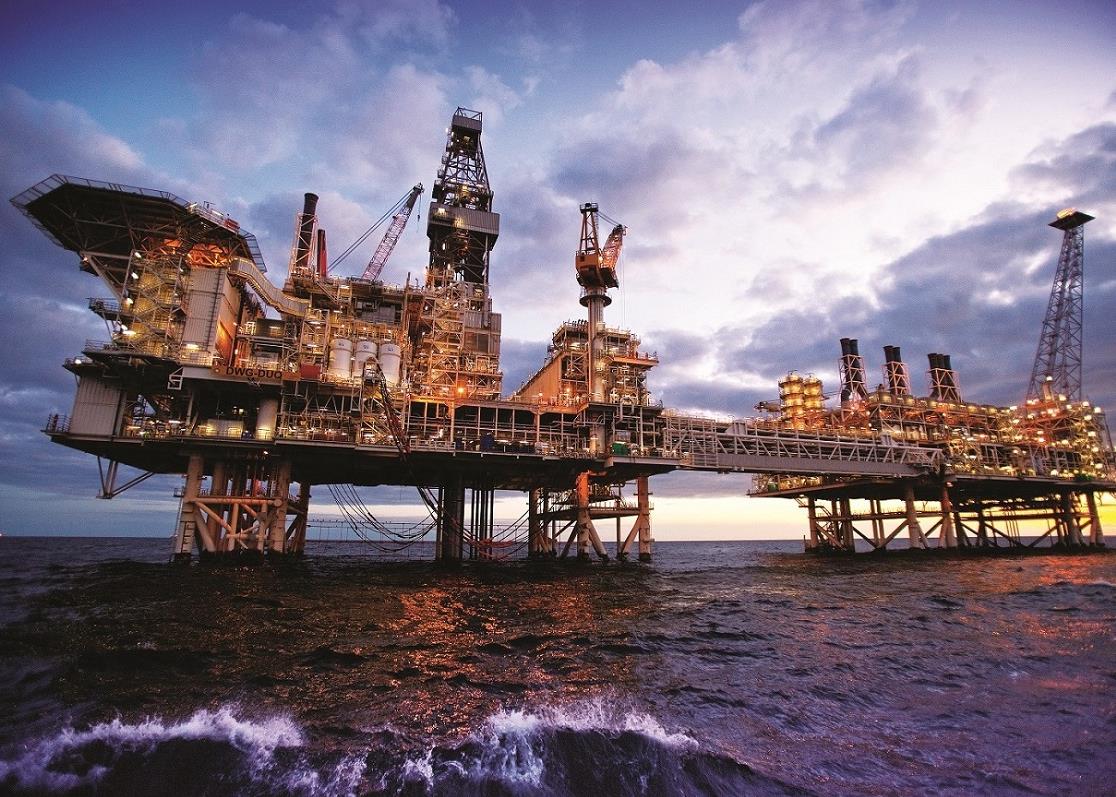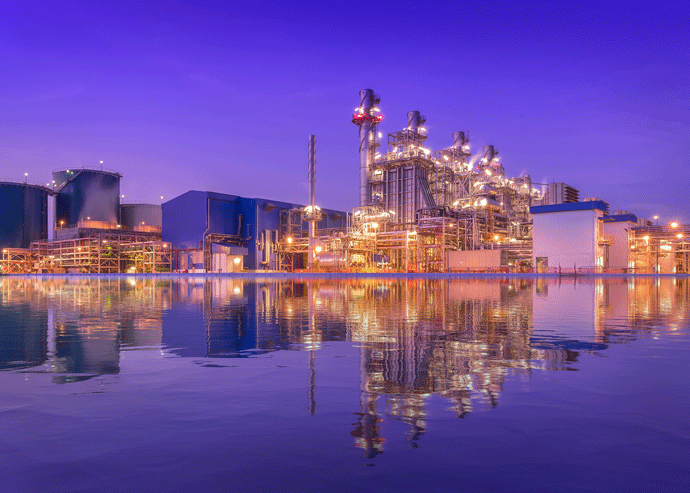
SPECIAL REPORT QATAR
GULF LEADERS change so rarely that the seizure of power by Sheikh Hamad Bin Khalifa al-Thani on 27 June caused quite a stir. For just a day, Qatar was front page news around the world. Despite the burst of interest, little was learnt about the event: Sheikh Hamad took just 90 seconds of television time to confirm that he had deposed his father as head of state. The rest of the ruling family apparently approved of his action and the new emir secured swift international recognition.
The change of leadership was less of a coup than a family feud brought to a decisive conclusion. ‘I am not happy with what has happened but it had to be done and I had to do it,’ Sheikh Hamad said in his television address. The 45-year old emir referred only to ‘the difficult circumstances’ that Qatar had experienced, which was his only allusion to differences between himself and his father.
The most striking aspect of the take-over was the ease with which it was achieved and accepted. The first change of leadership in 23 years caused barely a ripple. The ousting of Sheikh Khalifa Bin Hamad al-Thani was made easier by the fact that he was abroad when Sheikh Hamad made his move. His removal caused little obvious surprise in Qatar where the growing differences between father and son were common knowledge.
Sheikh Hamad had built up a reputation as an activist trying to help Qatar make a mark in the world while his father was a more reserved figure, reluctant to take the high risks implied by Qatar’s many ambitious development schemes.
As heir apparent, Sheikh Hamad had developed a reputation for getting things done. He assumed more responsibility for the day-to-day running of affairs during the Kuwait crisis in 1990-91 and had come to be seen as the driving force behind Qatar’s quest to develop a stronger international identity. He was directly involved in promoting major projects in several spheres - from the landmark Qatargas scheme to the annual international Doha tennis tournament. Now that he has taken full control, it is widely assumed that there will be more high profile projects and events.
Sheikh Hamad made minimal changes in a cabinet reshuffle on 11 July, suggesting that he faced no serious opposition within ruling circles. The only major casualty was Issa Ghanem al-Kawari, a close associate of the deposed emir, who lost his post as of minister of state for Diwan affairs. The new emir’s brother, Interior Minister Sheikh Abdulla Bin Khalifa al-Thani, acquired the newly created title of deputy prime minister. All the other key positions were left unchanged.
Ending speculation
The cabinet reshuffle was accompanied by an emiri decision to end speculation about the next succession. Sheikh Hamad decreed that he will, with the approval of the ruling family, appoint one of his sons as heir apparent.
The new emir was quick to reassure Saudi Arabia and secure the kingdom’s approval for his action. Interior Minister Sheikh Abdullah and Foreign Affairs Minister Sheikh Hamad Bin Jassim Bin Jabr al-Thani went to Jeddah immediately to meet King Fahd and official Saudi recognition followed the next day. Sheikh Hamad visited the kingdom himself in early August in his first trip abroad since the take-over.
Such signs of goodwill in relations with Saudi Arabia have provided some encouragement that there might be progress at last on the three-year old border dispute, as well as on the more sensitive question of maritime boundaries with Bahrain.
Nevertheless, Qatar is intent on maintaining its independent foreign policy stance, which has set it apart from the GCC consensus. By regional standards, the cordial relations with Baghdad are exceptional, as highlighted by the presence in Doha of Iraqi Foreign Affairs Minister Mohammed Saeed al-Saha on 24 July, for his third official visit this year. Qatari officials continue to stress that contacts with the Iraqi regime are motivated by humanitarian considerations and are not intended to undermine the international embargo so long as Baghdad fails to comply with UN sanctions resolutions. Ties with Iran are also cordial; a dialogue has been opened with Israel; and relations with the Palestinians are especially close.
It is the economy that provides the biggest challenge for Sheikh Hamad, however. The new emir hopes to achieve a difficult balancing act. Qatar needs to secure substantial funds for new gas-based industries - which will only yield returns early next century - while its income from oil is flat or falling.
Sheikh Hamad has already demonstrated that he sees economic liberalisation as a priority. His first emiri decree, issued on 3 July, approved the long-awaited establishment of the Doha securities market. The formal exchange is expected to become operational in the first half of 1996 and it should encourage the return of private sector capital and the creation of new investment vehicles.
The creation of the exchange has been widely welcomed. ‘It is a positive development as it will make for a more organised and developed market for commercial activities and control purposes,’ says Qatar Central Bank governor Abdulla Bin Khalid al-Attiya. ‘It will help to mechanise the sale of shares…and it will be a vehicle for privatisation.’
However, the impact of a stock exchange is only likely to be felt long term and the government’s liquidity problems will have to be solved by more traditional methods. This means oil, which accounts for over 75 per cent of foreign exchange earnings.
Boosting capacity
Despite the $4 a barrel slide in oil prices from a peak in May, Energy & Industry Minister Abdulla Bin Hamad al-Attiya says that Qatar remains committed to its OPEC quota of 378,000 barrels a day (b/d), although persistent industry reports put actual output at over 400,000 b/d. There is no such doubt over the plans by state oil company Qatar General Petroleum Corporation (QGPC) to boost capacity and recovery rates from oil reserves of 4,200 million barrels. ‘We are developing our sustainable capacity to meet demand at the end of the century,’ he says. ‘This is a long term policy and has nothing to do with the market we are presently in.’
The government itself is keeping capital spending on a tight rein. In the fiscal 1995/96 budget, unveiled in May, capital outlays were trimmed by 4 per cent to QR 2,224 million while current expenditure was up by 7.7 per cent, mostly to cover the costs of a generous public welfare programme. The budgeted deficit is set to rise slightly to QR 3,531 million ($969.7 million).
The squeeze on capital expenditure has left the authorities with no option but to seek international financing for their gas projects. Over the past two years, an estimated $4,000 million of project finance has been secured, a sum equivalent to almost 70 per cent of gross domestic product (GDP). The figure is bound to grow, as Doha plans to launch a second liquefied natural gas (LNG) venture and numerous other industrial proposals, based on North Field gas feedstock.
The accumulation of external debt is seen as a necessary consequence of the need to diversify Qatar’s sources of income and to ensure its long- term prosperity. ‘For central bankers anywhere, borrowing is a concern,’ says bank governor Al-Attiya. ‘But when the borrowing is for development projects, such as we have, it is a positive step.’
The pressure for financial restraint is most apparent outside the gas sector. Says Municipal Affairs & Agriculture Minister Sheikh Ahmed Bin Hamad al-Thani, ‘We are all having to find ways of doing projects, which will not affect the planned expansion of our gas industries.’ The minister is considering privatising the sewage network and is planning to tender the Doha international airport expansion project on a build and finance basis. The Ministry of Electricity & Water (MEW) has already applied the build and finance model to the $1,200 million Ras Abu Fontas B power station scheme and the estimated $720 million programme to expand the Doha transmission network.
The government’s readiness to finance projects in this manner has changed perceptions of Qatar’s potential. Many international engineering contractors now view Qatar as one of the top three Gulf markets. Those involved in industrial developments at Ras Laffan and Umm Said are looking eagerly to the next generation of North Field projects. Local contractors are less pleased. They are suffering from lower public sector spending and some complain of ever longer payment delays. One consolation is the growth of private sector investment in housing and commercial building, as a direct result of the industrialisation programme.
Qatar will celebrate its national day on 3 September with a new leader for the first time in almost a quarter of a century. Sheikh Hamad’s accession has provided a psychological boost and raised expectations that new policies to promote quicker development in one of the Gulf’s more conservative states, will be forthcoming. On the evidence so far, such expectations are not misplaced.
Exchange rate:$1=QR 3.6411
See also:
You might also like...

Adnoc Offshore awards Upper Zakum contract
17 April 2024

Oman awards Batinah coastal road contract
17 April 2024

Oman appoints Al Khuwair Downtown project manager
17 April 2024
A MEED Subscription...
Subscribe or upgrade your current MEED.com package to support your strategic planning with the MENA region’s best source of business information. Proceed to our online shop below to find out more about the features in each package.









